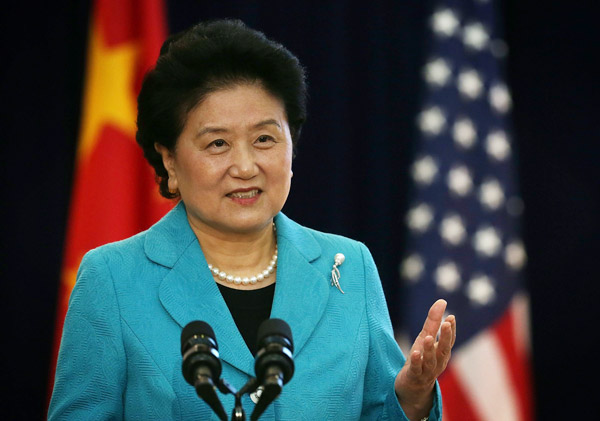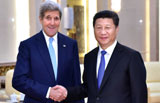
China, US team up on wildlife protection
Updated: 2016-03-04 09:25
By CHEN WEIHUA in Washington and ZHENG JINRAN in Beijing (chinadaily.com.cn)
Comments Print Mail Large Medium SmallA new US government report praises the bilateral cooperation between China and the US in combating wildlife trafficking.
The 2015 annual progress assessment of US national strategy was released on Thursday by the Task Force on Wildlife Trafficking, set up by US President Barack Obama and including 17 federal departments and agencies, to mark the 2016 World Wildlife Day on Thursday.
It lists as a major achievement the agreement between Obama and President Xi Jinping in Washington last September to enact nearly complete bans on ivory imports and exports and to take significant and timely steps to halt the domestic commercial trade of ivory.
The 32-page report features a big photo of Obama and Xi shaking hands in the White House to highlight global and bilateral cooperation on the issue. China, the US and the European Union are major markets for illicit wildlife trade.
The report cites efforts by US government departments in China in the past year. For example, the State Department published in Chinese newspapers and websites an op-ed commending the bilateral commitments and calling for their quick implementation.
Bilateral engagement has been conducted on multiple levels, such as a daylong session on wildlife trafficking as part of the China-US Strategic and Economic Dialogue (S&ED) in Washington in June 2015.
According to the report, the discussions at the meeting led to a bilateral agreement to stem the illegal trade in totoaba and sea turtles, to work jointly on enforcement, and to explore opportunities to use new and emerging technologies to inform and improve wildlife protection and law enforcement.
Last September, the US Fish and Wildlife Service organized trilateral meetings of China, US and Mexico on the illegal trade in totoaba to address the trafficking problem of the endangered fish species.
US Ambassador to China Max Baucus filmed an anti-ivory public announcement for the Chinese media and conducted an anti-wildlife trafficking print media campaign of billboards across China using his image.
The report also praised the commitment reaffirmed by China and the US on trilateral cooperation in Arica.
On Wednesday evening, the US State Department marked World Wildlife Day with a projection of images of endangered species on its C Street fa?ade.
In China, the State Forestry Administration said in a statement on Thursday that it will revise laws and regulations for the protection of wild animals.
The revised draft of the Law on the Protection of Wildlife will build a mandatory protection system for their habitats, set a threshold for wildlife products to be traded, and put a stricter rein on trafficking and other illegal business involving wildlife, according to the statement.
Protection projects on wildlife will be listed in work agendas for the next five years as the 13th Five-Year Plan (2016-2020) has stipulated protection targets, for example, conducting programs on precious species such as the panda and Siberian tiger. The revised draft was presented to the Standing Committee of the National People's Congress for discussion on Dec 21.
The Vienna-based United Nations Office on Drugs and Crime said on Thursday that billions of dollars in profit are made from the wildlife and forest crimes, destroying biodiversity and hindering sustainable growth.
In 2015, 1,175 rhinos were poached in South Africa, while Central Africa has now lost 64 per cent of its elephants in less than a decade, it said.
Contact the writers at chenweihua@chinadailyusa.com and zhengjinran@chinadaily.com.cn






